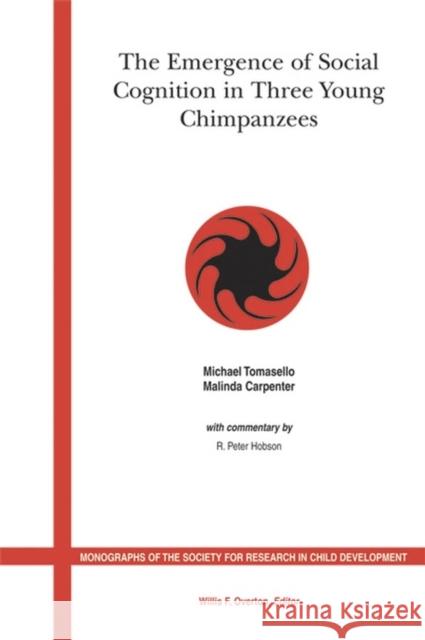The Emergence of Social Cognition in Three Young Chimpanzees » książka
topmenu
The Emergence of Social Cognition in Three Young Chimpanzees
ISBN-13: 9781405147262 / Angielski / Miękka / 2005 / 176 str.
This Monograph reports a series of ten studies on the social-cognitive abilities of three young chimpanzees, ages to four years.
- Compares outcomes to similar studies conducted on human infacts for a comparative understanding.
- Looks at chimpanzees' abilities to understand and imitate goal-directed actions.
- Results suggest that the ontogeny of human social cognition comprises two relatively distinct trajectories: one for understanding intentional action and perception, common to all apes, and another for sharing psychological states with others in collaborative acts involving joint intentions and attentions, unique to the human species.











